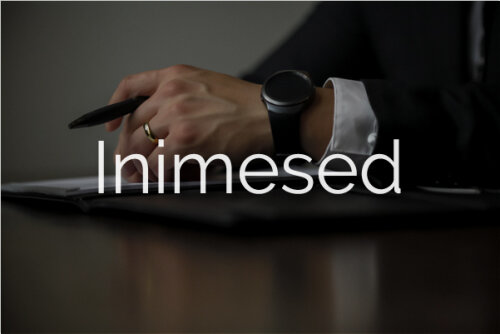Best Admiralty & Maritime Lawyers in Estonia
Share your needs with us, get contacted by law firms.
Free. Takes 2 min.
Or refine your search by selecting a city:
List of the best lawyers in Estonia
About Admiralty & Maritime Law in Estonia
Admiralty and Maritime Law in Estonia governs activities that occur on navigable waters, including the Baltic Sea, which surrounds the country. This field of law covers a wide array of topics, including shipping, navigation, waterside activities, and maritime industry regulations. Given Estonia’s strategic location and historical connection to seafaring, the nation plays a significant role in regional maritime business and trade. Estonian maritime law adheres to both international conventions and local statutes, providing a legal framework for shipping operations, maritime safety, environmental protection, and dispute resolution.
Why You May Need a Lawyer
Navigating maritime law can be complex due to its specialized nature and the international laws at play. There are several situations where you might require a maritime lawyer in Estonia:
- Disputes related to cargo claims or damage.
- Legal issues regarding vessel registration and ownership.
- Insurance claims concerning maritime losses.
- Negotiating maritime contracts, such as charter parties.
- Matters of maritime employment, including crew contracts and disputes.
- Incidents of maritime pollution or environmental regulations.
- Safety and compliance issues under international maritime standards.
Local Laws Overview
Estonian maritime law is heavily influenced by international maritime conventions to which Estonia is a party, such as the International Convention for the Safety of Life at Sea (SOLAS) and the International Convention on Standards of Training, Certification, and Watchkeeping for Seafarers (STCW). Key aspects of local laws include:
- Maritime Safety Act: Establishes safety standards for vessels and crew operations.
- Merchant Shipping Code: Governs merchant shipping activities and vessel registration.
- Environmental Regulations: Covers maritime pollution control and compliance with international standards for environmental protection.
- Jurisdiction and Dispute Resolution: Estonia coordinates its approaches within the framework of the EU and international norms, while also catering to local legal nuances.
Frequently Asked Questions
What is the jurisdiction for maritime disputes in Estonia?
Maritime disputes in Estonia are primarily handled by the country's civil courts, with some cases potentially escalating to international arbitration if stipulated in contracts or necessary by mutual agreement.
What are the requirements for registering a vessel in Estonia?
To register a vessel in Estonia, you must submit an application to the Estonian Maritime Administration including documentation of ownership, compliance with safety standards, and payment of relevant fees.
Does Estonian law protect seafarers' rights?
Yes, Estonian law protects seafarers' rights through regulations aligned with international standards, ensuring fair treatment, safety, and appropriate working conditions.
How does Estonia handle maritime pollution incidents?
Estonia employs stringent environmental regulations and actively participates in international conventions aimed at reducing and managing maritime pollution.
What are the insurance requirements for Estonian vessels?
Estonian vessels are required to carry insurance that covers liability for pollution damage, civil liabilities, and hull insurance as per international maritime insurance norms.
Can foreign vessels operate under the Estonian flag?
Yes, foreign-owned vessels can register under the Estonian flag, but they must meet specific criteria set by the Estonian Maritime Administration.
Is Estonia a signatory to the IMO conventions?
Yes, Estonia is a signatory to various International Maritime Organization (IMO) conventions, including those on safety, pollution prevention, and maritime labor.
What documentation is required for port entry in Estonia?
Ships entering Estonian ports must submit the arrival notice, crew lists, cargo documentation, and certificates relevant to health and safety standards.
Are there any tax incentives for maritime operations in Estonia?
Yes, Estonia provides certain tax incentives and benefits for maritime operations, particularly for shipping companies aiming to grow the maritime sector in Estonia.
Where can I find updated maritime regulations applicable in Estonia?
Updated maritime regulations can be found through the Estonian Maritime Administration and associated governmental bodies, where latest amendments and statutory changes are published.
Additional Resources
If you require further information or assistance, consider reaching out to the following resources:
- Estonian Maritime Administration: Provides guidance on registration, safety, and regulatory compliance.
- Estonian Maritime Academy: Offers training and educational resources related to maritime law and practices.
- Local Law Firms Specializing in Maritime Law: Professional legal services can be sought for personalized advice and representation.
- International Maritime Organization (IMO): A valuable resource for internationally relevant maritime regulations and conventions.
Next Steps
If you need legal assistance in the field of Admiralty & Maritime in Estonia, it's essential to take the following steps:
- Identify the specific legal issue you are facing in the maritime context.
- Gather all relevant documentation and information related to your situation.
- Seek consultation with a maritime lawyer or law firm with expertise in Estonian maritime law for professional advice and guidance.
- Engage with relevant authorities and regulatory bodies as advised by your legal counsel to address your issue appropriately.
Lawzana helps you find the best lawyers and law firms in Estonia through a curated and pre-screened list of qualified legal professionals. Our platform offers rankings and detailed profiles of attorneys and law firms, allowing you to compare based on practice areas, including Admiralty & Maritime, experience, and client feedback.
Each profile includes a description of the firm's areas of practice, client reviews, team members and partners, year of establishment, spoken languages, office locations, contact information, social media presence, and any published articles or resources. Most firms on our platform speak English and are experienced in both local and international legal matters.
Get a quote from top-rated law firms in Estonia — quickly, securely, and without unnecessary hassle.
Disclaimer:
The information provided on this page is for general informational purposes only and does not constitute legal advice. While we strive to ensure the accuracy and relevance of the content, legal information may change over time, and interpretations of the law can vary. You should always consult with a qualified legal professional for advice specific to your situation.
We disclaim all liability for actions taken or not taken based on the content of this page. If you believe any information is incorrect or outdated, please contact us, and we will review and update it where appropriate.
Browse admiralty & maritime law firms by city in Estonia
Refine your search by selecting a city.
















